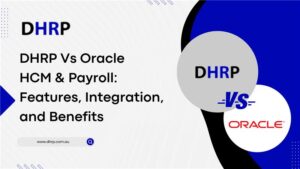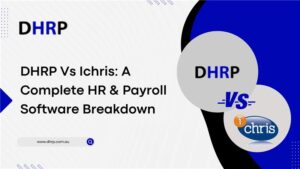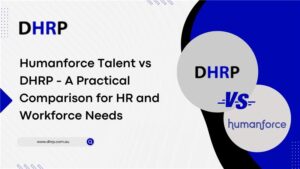ERP cloud migration may have initially seemed like a trend, but with time and the evolution of business needs, it has become a strategic move. For organisations looking to modernise or scale, migration can help you enhance your agility and ensure cost-effective operations.
But with times constantly evolving in a business world, which ERP is shining? This is when ERP cloud migration with Dynamics 365 has proven itself to be better than the crowd. Here are some reasons why Australian companies can benefit from Microsoft’s redefinition of ERP through its unified ecosystem and AI-powered tools.
How Dynamics 365 Is Powering ERP Cloud Migration Success
In its FY25 Q4, Microsoft’s Dynamics products and cloud services saw an 18% surge in revenue, with Dynamics 365 alone seeing an impressive 23% year-over-year growth. This trend is a blatant indication that companies all over the world, including those in Australia, are enthusiastically adopting ERP cloud migration.
Additionally, the market continues to grow. The global market for Microsoft Dynamics is expected to reach US$17.33 billion by 2029, having grown from US$10.2 billion in 2024 to US$11.37 billion in 2025 (11.5 percent CAGR). That’s strong growth fueled by cloud adoption and AI integration, which directly affects Australian SMEs and businesses.
Why Choose Dynamics 365 for ERP Migration in 2025?
Smart, scalable, and secure solutions are essential in Australia’s business environment. The following explains why Dynamics 365 is the best option for businesses implementing ERP, including those wishing to migrate Dynamics AX to Dynamics 365.
1. Built-in AI: The Copilot Revolution
- AI everywhere: Copilot, an AI agent, is integrated into Dynamics 365's new 2025 wave for Sales, Service, Finance, and other areas, turning routine tasks into more intelligent workflows.
- Real-world impact: Dynamics Copilots provide comprehensive insights into Business Central, Sales, Supply Chain, and other modules, ranging from forecasting to document drafting.
- Productivity gains: According to preliminary data, AI assistants reduce task time; employees complete documents 12% faster and spend 30 minutes less on emails.
2. A Unified Microsoft Ecosystem
D365 implementation is easy for companies that are already using the Microsoft stack, thanks to its seamless integration with Office 365, Azure, and Power BI. Besides, Data flows from transactional systems to Excel, Teams, and Power BI dashboards, making analytics and collaboration simple.
3. Scalable Cloud Infrastructure
Built on Azure’s global backbone, which is currently targeting an AI investment of over US$30 billion next quarter, Dynamics 365 offers both cloud-native and hybrid options, essential for Australian businesses managing data sovereignty and compliance.
Local performance and support are essential for Australian organisations due to Azure’s growing footprint.
4. Cost Efficiency and Consolidation
Overhead is reduced by combining Dynamics 365’s ERP, CRM, analytics, and productivity tools. Due to their silos, insecurity, and inflexibility, legacy systems are more expensive to maintain.
Dynamics 365 enhances productivity and returns on investment for ERP implementation programs when combined with AI-driven automation.
5. Tailored for Australian SMBs to Enterprises
Dynamics 365 scales easily, from Business Central, which serves smaller businesses, to Finance, Supply Chain Management, and Commerce, which larger companies use.
Australian businesses are given a path that changes as they grow, whether they choose to start from scratch or migrate from Dynamics AX to Dynamics 365.
Dynamics 365 ERP Cloud Benefits in Action
When you utilise the ERP system, you will gain a deeper understanding of its benefits. Some highlights of them are:
Benefit | What It Means for Australian Businesses |
Familiar Interface | Leverages the Microsoft Office UI, reducing training effort and speeding adoption |
AI-Driven Insights | Copilot aids forecasting, anomaly detection, lead qualification, and writing, creating smarter staff |
Flexible Deployment | Cloud-first with optional hybrid, ideal for strict regulatory environments and remote Australian operations |
Unified Platform | ERP, CRM, analytics, and productivity in one, fewer stovepipes, faster decision-making |
Future-Ready | With AI and digital agents baked in, Dynamics 365 sets the foundation for next-gen ERP Cloud Migration strategies |
Why Australian Organisations Should Invest Now
You might have many reasons now, but a few that you should stick with are:
- Dynamics 365 ERP cloud migration is a transformation, not merely a migration.
- Strong revenue growth of 23% indicates innovation and global adoption.
- AI capabilities are essential to contemporary ERP and are no longer optional.
- A unified, AI-enhanced, and scalable ERP solution can be especially advantageous for the diverse, digitally evolving Australian business ecosystem.
Strategic Points for Your ERP Journey
Now that you have made your decisions, you may be thinking about the next steps. Here is something to take away:
- Step-by-Step Migrations: Phased D365 deployment guarantees less business disruption and more seamless transitions if you're using AX or NAV on-premise.
- Go with Regional Partners: Use the robust Microsoft partner network in Australia to access industry-specific, regional Dynamics 365 implementation services.
- Create a Reasonable Budget: Although operating costs are decreased by modern cloud ERP, licensing, deployment services, change management, and AI improvements should all be factored into the upfront Dynamics 365 implementation cost.
- Track Metrics: Key metrics to track include time saved, report automation, decision cycle enhancements, and system uptime, which are essential for verifying the success of the ERP cloud migration and the associated investment.
Conclusion
In the modern digital landscape, ERP cloud migration is no longer optional—it’s the foundation for growth. Dynamics 365 is redefining ERP solutions for Australian businesses with its AI-driven insights, unified ecosystem, and scalable cloud infrastructure.
Whether you’re upgrading from legacy systems or starting fresh, the right ERP implementation specialists and ERP migration consultants can ensure a smooth, future-ready transition.
That’s where DHRP comes in—empowering Australian organisations with tailored Dynamics 365 strategies that maximise efficiency, compliance, and ROI.
Now is the time to embrace intelligent ERP transformation and secure a competitive edge with Dynamics 365 and DHRP.
FAQs
Dynamics 365 cloud migration enhances scalability, boosts performance, ensures compliance, improves data accessibility, and integrates business processes seamlessly, helping organisations streamline operations, reduce costs, and adapt quickly to changing business demands.
Dynamics 365 stands out with AI-driven insights, Microsoft ecosystem integration, advanced security, and industry-specific flexibility, enabling businesses to modernise operations efficiently, scale confidently, and gain long-term value from their ERP cloud migration journey.
Dynamics 365 leads with innovation by combining cloud scalability, AI-driven automation, real-time analytics, and regulatory compliance, empowering businesses to adopt future-ready ERP cloud migration strategies aligned with growth, efficiency, and competitive market requirements.



































































































